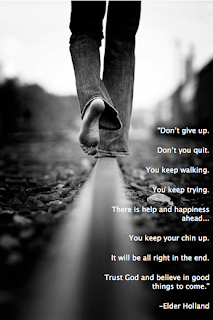JIMI HENDRIX
G'day guys,
Welcome to the life and times of one of the best guitarists ever - JIMI HENDRIX.
Born on November 27, 1942, in Seattle, Washington, Jimi
Hendrix learned to play guitar as a teenager, and grew up to become a rock
guitar legend who excited audiences in the 1960s with his innovative electric
guitar playing. One of his most memorable performances was at Woodstock in
1969, where he performed "The Star Spangled Banner." Hendrix died in
1970 from drug-related complications, leaving his mark on the world of rock
music and remaining popular to this day.
Guitarist,
singer and songwriter Jimmy Hendrix was born Johnny Allen Hendrix (later
changed to James Marshall) on November 27, 1942, in Seattle, Washington.
Learning to play guitar as a teenager, Hendrix grew up to become a rock guitar
legend. He had a difficult childhood, sometimes living in the care of relatives
and even acquaintances at times.
His
mother, Lucille, was only 17 years old when Hendrix was born. She had a stormy
relationship with his father, Al, and eventually left the family after the
couple had two more children together, sons Leon and Joseph. Hendrix would only
see his mother sporadically before her death in 1958.
In many
ways, music became a sanctuary for Hendrix. He was a fan of blues music and
taught himself to play guitar. At the age of 14, Hendrix saw Elvis Presley perform. He got his first
electric guitar the following year and eventually played with two bands—the
Rocking Kings and the Tomcats. In 1959, Hendrix dropped out of high school. He
worked odd jobs while continuing to follow his musical aspirations.
Hendrix
enlisted in the United States Army in 1961 and trained at Fort Ord in
California to become a paratrooper. Even as a soldier, he found time for music,
creating a band named The King Casuals. Hendrix served in the army until 1962
when he was discharged due to an injury.
After
leaving the military, Hendrix pursued his music, working as a session musician
and playing backup for such performers as Little Richard, Sam Cooke and the Isley Brothers. He also
formed a group of his own called Jimmy James and the Blue Flames, which played
gigs around New York City's Greenwich Village neighborhood.
In
mid-1966, Hendrix met Chas Chandler—a former member of the Animals, a
successful rock group—who became his manager. Chandler convinced Hendrix to go
to London where he joined forces with musicians Noel Redding and Mitch Mitchell
to create The Jimi Hendrix Experience. While there, Hendrix built up quite a
following among England's rock royalty.
Members
of the Beatles, the Rolling Stones, the Who and Eric Clapton were all great admirers of
Hendrix's work. One critic for the British music magazine Melody Maker said
that he "had great stage presence" and looked at times as if he was
playing "with no hands at all."
Released
in 1967, the band's first single, "Hey Joe" was an instant smash in
Britain, and was soon followed by other hits such as "Purple Haze"
and "The Wind Cried Mary." On tour to support his first album, Are
You Experienced? (1967), Hendrix delighted audiences with his outrageous
guitar-playing skills and his innovative, experimental sound.
He won over
American music fans with his stunning performance at the Monterey Pop Festival
in June 1967, which ended with Hendrix lighting his guitar on fire.
Quickly
becoming a rock music superstar, Hendrix scored again with his second album, Axis:
Bold as Love (1968). His final album as part of the Jimi Hendrix
Experience, Electric Ladyland (1968), was released and featured the hit
"All Along the Watchtower," which was written by Bob Dylan. The band continued to tour
until it split up in 1969.
That same
year, Hendrix performed at another legendary musical event: the Woodstock
Festival. His rock rendition of "The Star-Spangled Banner" amazed the
crowds and demonstrated his considerable talents as a musician. He was also an
accomplished songwriter and musical experimenter. Hendrix even had his own
recording studio in which he could work with different performers and try out
new songs and sounds.
Hendrix
tried his luck with another group, forming Band of Gypsys in late 1969 with his
army buddy Billy Cox and drummer Buddy Miles. The band never really took off,
and Hendrix began working on a new album tentatively named First Rays of the
New Rising Sun, with Cox and Mitch Mitchell from the Jimi Hendrix
Experience. Unfortunately Hendrix did not live to complete the project.
Hendrix
died on September 18, 1970, from drug-related complications. While this
talented recording artist was only 27 years old at the time of his passing,
Hendrix left his mark on the world of rock music and remains popular to this
day. As one journalist wrote in the Berkeley Tribe, "Jimi Hendrix could
get more out of an electric guitar than anyone else. He was the ultimate guitar
player."
Clancy's comment: What can I say? Jimi rocks on.
I'm ...
Think about this!
Thanks.
Rest in peace, Jimi.











































